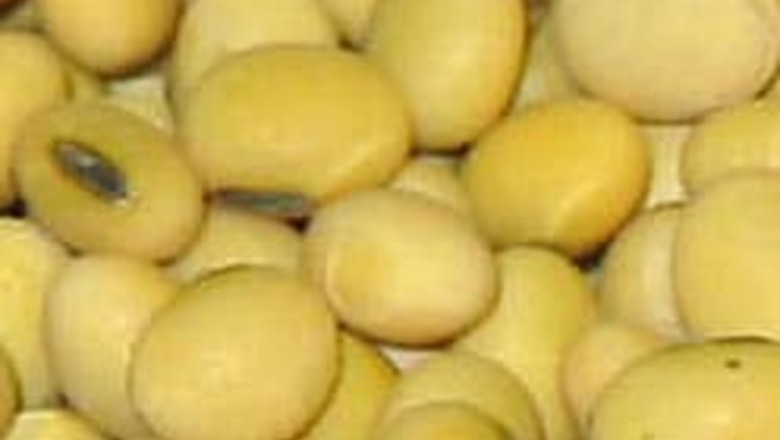
views
New York: Consumption of the estrogen-like "isoflavone" substances found in soy may reduce the risk of developing early prostate cancer, but isoflavones appear to be associated with advanced disease if prostate cancer does occur, Japanese researchers report.
Isoflavones found in traditional foods that Japanese eat throughout life may be protective against prostate cancer, Dr Norie Kurahashi told Reuters Health.
However, he said that they couldn’t recommend isoflavones from supplements to those who don't consume them regularly, "because isoflavones may increase the risk of advanced prostate cancer."
Kurahashi and associates from the National Cancer Center, Tokyo, investigated the association between dietary isoflavones and risk of prostate cancer in a study of Japanese men, who generally consume large amounts of soy products and have a low rate of prostate cancer.
The study, which is reported in Cancer Epidemiology, Biomarkers & Prevention, involved some 43,500 men followed from 1995 through 2004.
During that time, 307 of them were diagnosed with prostate cancer.
Consumption of isoflavones (principally genistein, but also daidzein and soy foods) was associated with a decreased risk of early prostate cancer, the authors report.
Genistein and daidzein, however, were associated with an increased risk of advanced prostate cancer, the results indicate.
The protective effect of isoflavones for early prostate cancer was clearest among men over 60 years old, the researchers note, as was the association of isoflavone with an increased risk of advanced prostate cancer.
"We suggest that isoflavones delay the progression from latent cancer to clinically significant prostate cancer in Japanese who consume isoflavones regularly throughout life," Kurahashi said.
"However, we do not know when or how isoflavones affect latent or (early) prostate cancer development and whether isoflavones can be used in the treatment or...prevention of this cancer."
More studies are needed "to clarify what period in life soy consumption exerts an effect against prostate cancer and what type of prostate cancer it can prevent," Kurahashi concluded.




















Comments
0 comment